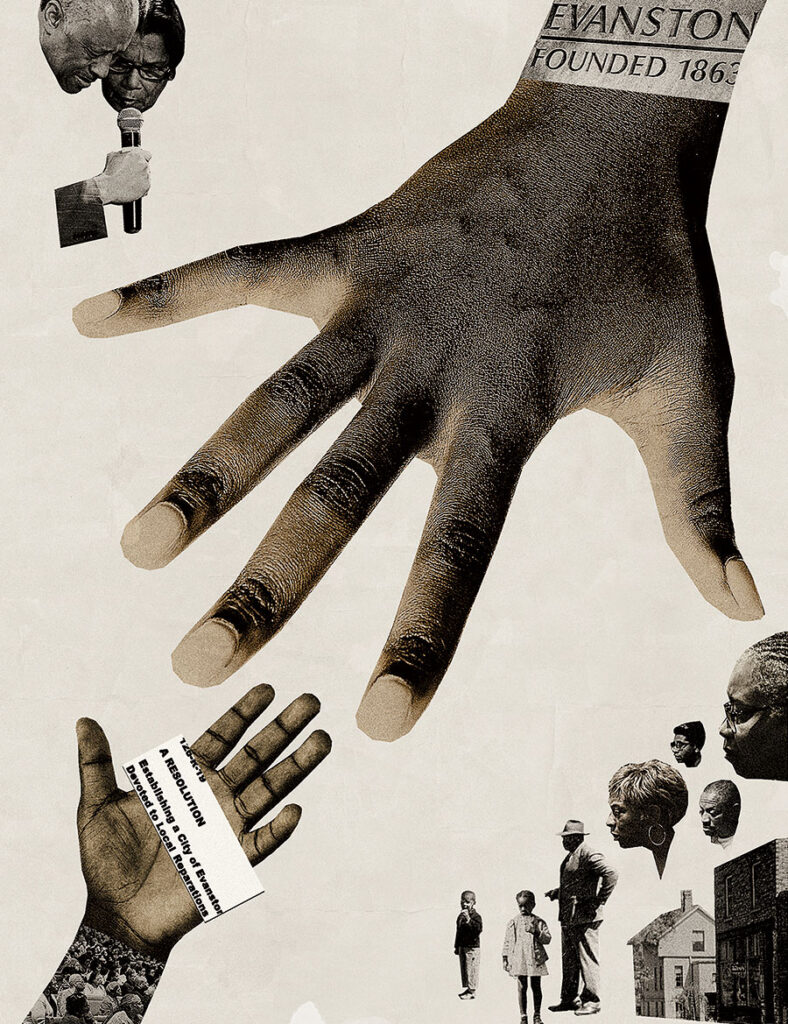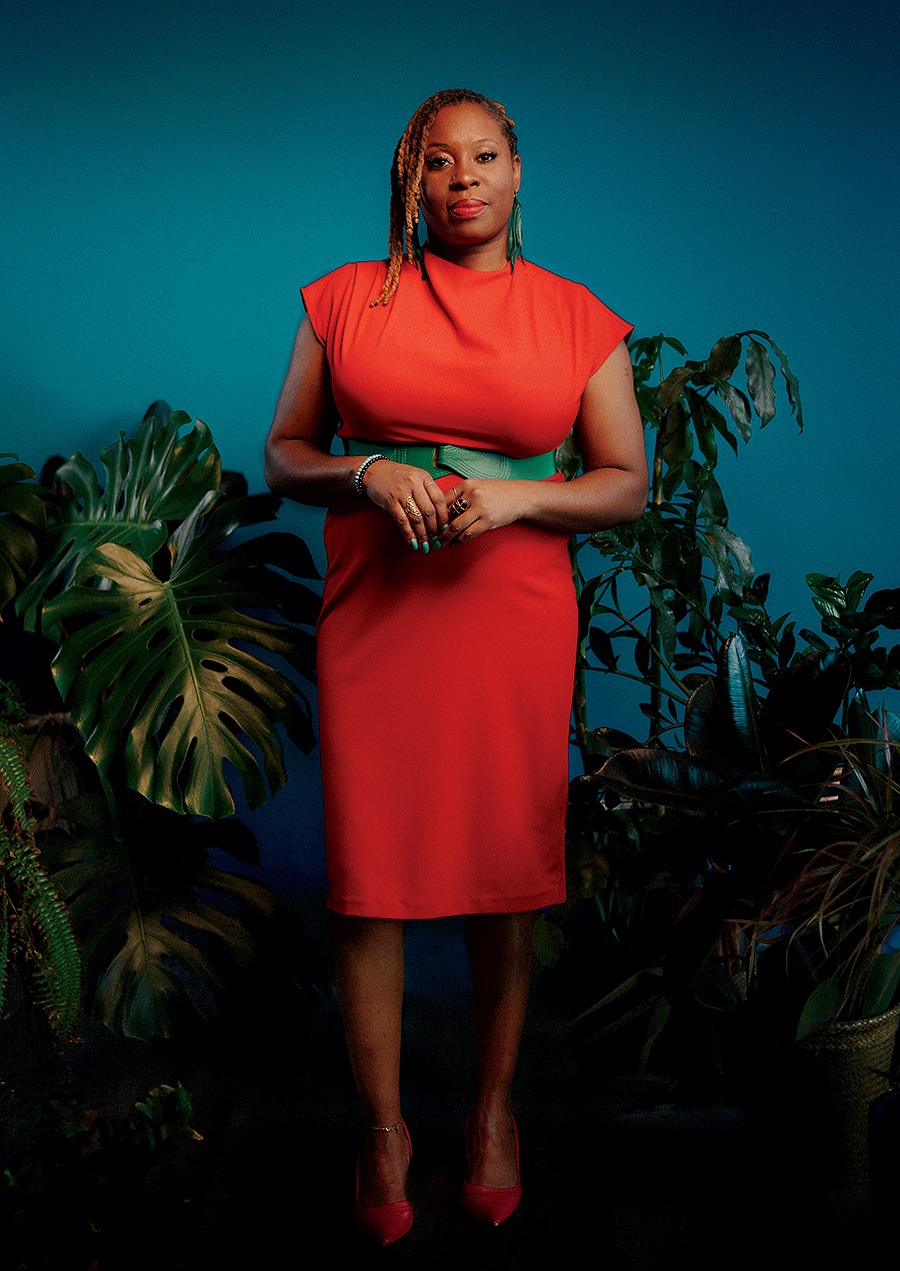It’s been 10 years since Ta-Nehisi Coates made Chicago a poster child (and not in a good way) with his essay “The Case for Reparations” in The Atlantic. He used our city to highlight how systemic racism and discriminatory policies, particularly involving housing, have perpetuated economic inequality for Black Americans. Since then, public discourse has grown around the topic, and last June, Mayor Brandon Johnson announced a task force to look into a reparations program here. Carla Kupe, the city’s chief equity officer, talked with Chicago about that effort, which she’s leading.
Where do things stand with the reparations initiative?
We are looking at March, April, to stand up the task force. We’re still in the building phase. We’re collaborating with the Black Caucus of the City Council to put the framework together. The general consensus is that the task force will be no bigger than 40 folks. We will have two groups. One will be appointed slots of 25, and then another group of 15 slots that the public can apply for.
Reparations aren’t always just about handing out financial payments. They can take other forms, such as a public apology, inside tracks to ownership in industries like cannabis, and home or land grants. How are you defining them here in Chicago?
We want Chicago to answer that question. Because we want to be intentional about how we approach reparations, we first have to know how our community defines them, what remedies they think would help the healing process. It’s not the government saying, “Well, we think this is what it is,” and then pushing it on the community. That’s what we want to avoid. We believe that the experts are those impacted. The experts are those closest to the condition of the harm.
“Other cities have backed off or said, ‘Let’s table this one.’ But not Chicago. We will stand firm, and we will continue to commit to this.”
How exactly will you go about determining how Chicagoans define reparations?
It will be a combination of things. It will involve surveys that have already been done by different community leaders or organizations who have been asking the question, “What does reparations look like to you?” The task force will also be having public hearings. Then the task force will issue the report, saying, “This is what we have seen. This is a way forward.”
What if the people you survey ask, “What are you doing for other marginalized communities?”
This is where the framing of what reparations are matters. If we are intentional about addressing certain harms that may be more strongly felt by one community, that will benefit the whole. Curb cuts and voice-to-text are for folks with disabilities, but we all benefit from them.
How did this initiative come about? Did Chicagoans ask for it?
There have been reparative initiatives even before this year, like through the City Council engaging in establishing economic slavery disclosures, through the Department of Cultural Affairs and Special Events [arts grants], through a task force addressing monuments and seeing which ones should be reframed or removed. This is a commitment to build upon what has already happened. We are engaging as a collective. Coming from my culture, we always look seven generations back and seven generations forward. We want to make sure that this is something that survives you and me. It is about having a long, lasting effect.
With Chicago grappling with issues such as the budget and education, how do you address those people who might question if reparations are where the city should be putting its focus right now?
Is this a priority? Yes. As a city, we do stand firm on equity. Other cities have backed off or said, “Let’s table this one.” But not Chicago. We will stand firm, and we will continue to commit to this.
The city has already allotted $500,000 for the task force. But with Chicago facing a continuing budget deficit, where will funding come from to actually implement reparations?
Right now it’s really about getting the task force started, having them look at the data. And then that report will get us to the point where we can further talk about funds.
Evanston has allocated $10 million to address housing discrimination, paid through grants to qualifying Black residents, but that program has been challenged by a class-action lawsuit. What have you learned from Evanston’s initiative?
What works for Evanston will not work for Chicago. Can we learn from each other? Absolutely. But at the end of the day, it has to be Chicago determining this for itself. It is really understanding that every city has its own historical and contemporaneous uniqueness and particularities. That’s why you see different cities, different states, going about things differently. That’s how it should be.
How does the new Trump administration impact the work you’re doing?
Presidents are only here for a certain amount of time. Mayors are here only for a certain amount of time. Our job is to advance equity regardless of whatever happens around us. We’re not turning away from this. We are committed.

Reparation Nation
Chicago isn’t the first municipality to explore remedies for injustices inflicted on Black communities. Here is how four others are addressing the issue.
EVANSTON
After committing $10 million to remedy past housing discrimination, the suburb in 2021 became the first U.S. city to pay reparations. Its program provides $25,000 grants for housing needs, such as mortgage payments or renovations, to Black residents who lived in town between 1919 and 1969 or to their descendants. As of November 2024, $5 million has been distributed. Last June, Judicial Watch, a conservative legal group, filed a federal class-action suit against the program, calling it “unconstitutional and discriminatory.”
ASHEVILLE, NORTH CAROLINA
The city earmarked $2.1 million for reparations in 2021 — funding stemming from the sale of city-owned land. A commission is still studying the issue, but its suggestions so far include financial settlements, health care subsidies, job training, and education support.
PROVIDENCE, RHODE ISLAND
In 2022, $10 million was approved for programs to close the wealth gap between whites and minority communities. As of last August, $4.5 million has been disbursed through investments in small businesses and financial literacy programs.
ST. PAUL, MINNESOTA
In 2023, following a resolution apologizing for “systemic discrimination,” the City Council created a commission tasked with advising how best to address harm caused to descendants of enslaved people. The process got off to a bad start, though, when the City Council had to apologize again — this time for offering the job of commission manager to someone whose ancestors weren’t enslaved.



